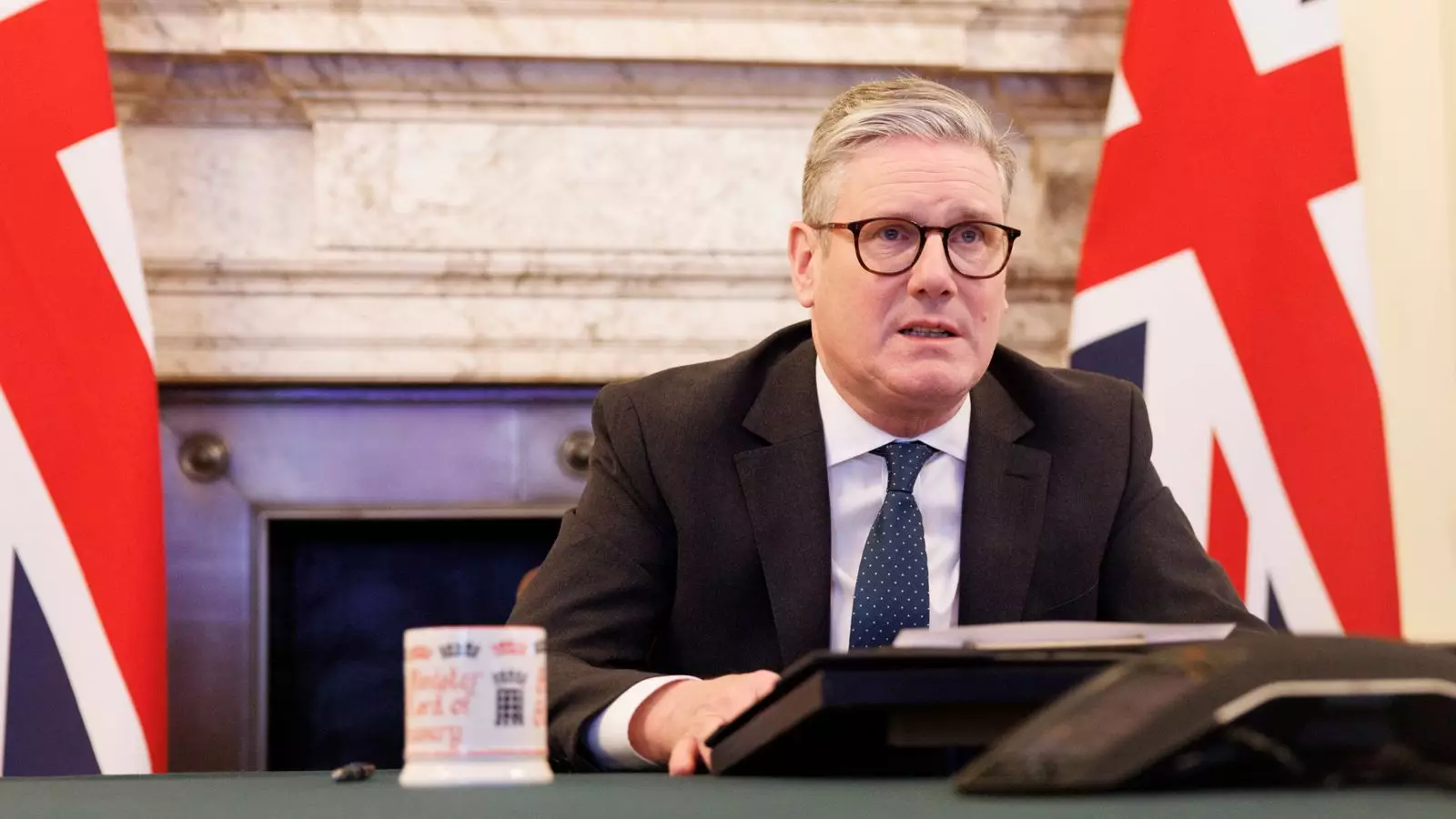The ongoing conflict in Ukraine has dragged on longer than anyone could have anticipated. The stakes are high: lives lost, economies shattered, and international relations teetering on the brink of further chaos. What should be a cry for humanitarian intervention is instead blurred by endless political posturing. As global leaders convene and conversations shift from dialogue to actionable commitments, the urgency cannot be understated. Sir Keir Starmer’s recent virtual meeting with world leaders epitomizes the necessary pivot from rhetoric to real-world implications, particularly with regards to Russia’s rampant aggression.
Instability sprouts not only in the region but also reverberates across the globe, as each passing day sees more civilian lives caught in the crossfire of geopolitical theatrics. Starmer’s push for “concrete commitments” reflects an essential demand for coordinated action—a plea that has been too long ignored while politicians engage in diplomatic chicken.
The Mirage of Diplomacy: Is Putin Serious?
Starmer’s dire warning about President Putin’s seemingly hollow promises for negotiation is particularly telling. The Russian leader’s historical tendency to deceive, highlighted by his dismissal of peace proposals, casts doubt on any genuine aim for resolution. By characterizing dialogue merely as a veneer behind which continued aggression is allowed, Starmer provides a critical lens through which we can assess not only the messages sent but the accountability that must follow.
Russia’s delayed responses and convoluted demands signal that they are not prepared for a ceasefire; they see the current landscape as an opportunity to dig in. Starmer’s statement resonates—”stop the barbaric attacks on Ukraine” should be an unequivocal demand from the global community, yet it’s often little more than hollow rhetoric. Until the Kremlin recognizes its own role in the continuation of violence, true peace remains an elusive dream.
Military Support: The Backbone of Any Peace Effort
For peace to be a tangible reality rather than an abstract concept, military support for Ukraine must be unequivocal and sustained. Starmer’s insistence on ramping up military assistance is a necessary stance, not just to bolster Ukraine’s defenses but to send a clear message of deterrence to Russia. While many may scoff at the prospect of further militarization in a conflict that has already seen significant bloodshed, history repeatedly warns us that failing to adequately support democratic nations under siege often leads to more brutal consequences in the long run.
Ukraine must be empowered to reclaim sovereignty—not solely as a reaction to Russian incursions but as a proactive measure to deter future conflicts. When allied nations fail to provide necessary support, it weakens global standing against aggression and sends a troubling signal that unchecked power can reign supreme.
Economic Pressure: The Silent Weapon
As military might plays its crucial role, economic sanctions amplify international unity against Russia. Starmer’s call for increased economic pressure is not merely a suggestion; it’s a prerequisite for any successful resolution to the conflict. A robust and coordinated economic strategy is the silent weapon that disrupts the Kremlin’s war machine by debilitating its resources.
To feel the weight of collective action, nations must rally behind synchronized measures targeting key sectors of the Russian economy. This shared economic resolve serves a dual purpose: squeezing the Kremlin while simultaneously demonstrating global solidarity. It highlights that the narrative of a divided West is an illusion, and that the moral imperative to act in defense of Ukraine is something that transcends borders and political divides.
A Ceasefire: Conditions for Genuine Peace
The prospect of peace cannot rest solely on the precarious concept of a ceasefire. If proposals are to be treated as steps toward building trust, they must be more than just words on paper. The world must demand accountability from those who might exploit such agreements for strategic delays.
As geopolitical leaders insist on monitoring ceasefires, they must recognize that half-measures and vague commitments serve no one. Starmer’s possibility of deploying British peacekeepers could be strategically pivotal—not merely as symbols of hope, but as enforcers of peace under strict judicial oversight tied to international law. These forces should be prepared—cloaked not in military might alone but in the conviction that genuine peace must begin with undeniable accountability from aggressor states.
The tall task ahead looms ominously, but it is a challenge we must face. The fight for peace in Ukraine is not just about one nation; it’s about upholding international norms and ensuring that future generations do not inherit a world where aggression and impunity are seen as viable options. The time for vacillation has passed; now is the critical hour for decisive action.


Leave a Reply